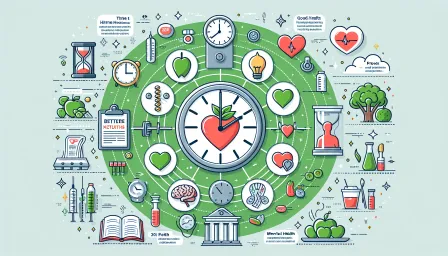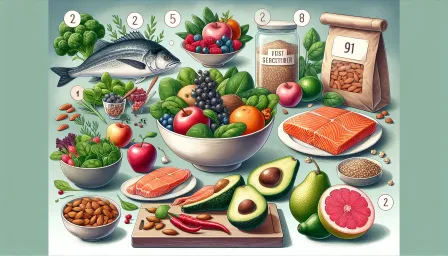Transform Your Health: Expert Tips on Food Journaling for Lifestyle Changes

Transform your health with expert tips on food journaling for lifestyle changes. Learn how to effectively track your diet and achieve your wellness goals.
Maintaining a healthy lifestyle can be challenging, especially with today's busy schedules and vast array of food options. However, one effective method that has helped countless individuals achieve their health goals is food journaling. In this article, we will explore how food journaling for lifestyle changes can transform your health, provide expert tips on creating a successful food journal, and discuss the benefits of this practice.
What is Food Journaling?
Food journaling involves recording the foods and beverages you consume throughout the day. This practice allows you to track your dietary habits, identify patterns, and make informed decisions about your nutrition. By keeping a detailed log of your food intake, you can gain valuable insights into your eating behaviors and make necessary adjustments to improve your health.
The Benefits of Food Journaling
1. Increases Awareness of Eating Habits
One of the most significant benefits of food journaling is increased awareness of your eating habits. By documenting everything you eat and drink, you become more conscious of what, when, and why you are consuming certain foods. This heightened awareness can help you identify unhealthy patterns and triggers, making it easier to implement positive changes.
2. Aids in Weight Management
Food journaling can be an effective tool for weight management. Studies have shown that individuals who keep a food diary are more likely to lose weight and maintain their weight loss compared to those who do not. By tracking your calorie intake and food choices, you can better adhere to your dietary goals and avoid overeating.
3. Identifies Nutritional Gaps
Another advantage of food journaling is its ability to highlight nutritional gaps in your diet. By reviewing your food log, you can identify if you are missing essential nutrients or consuming too much of certain unhealthy foods. This information can help you make informed decisions about your diet and ensure you are meeting your nutritional needs.
4. Enhances Accountability
Keeping a food journal can enhance your accountability by making you more mindful of your food choices. When you know you have to document everything you eat and drink, you may be less likely to indulge in unhealthy options. This accountability can be a powerful motivator in helping you stick to your dietary goals.
5. Provides Data for Healthcare Professionals
Food journals can be valuable tools for healthcare professionals, such as dietitians and nutritionists. By reviewing your food log, these experts can provide personalized recommendations and guidance based on your specific dietary habits and needs. This personalized approach can significantly improve your overall health and well-being.
Expert Tips for Effective Food Journaling
1. Be Consistent
Consistency is key when it comes to food journaling. Make it a habit to record your food intake every day, including weekends and holidays. The more consistent you are, the more accurate and valuable your food journal will be.
2. Record All Details
For your food journal to be effective, it is important to record all details of your food and beverage intake. This includes portion sizes, ingredients, preparation methods, and any added condiments or sauces. The more detailed your entries, the better insights you will gain.
3. Note Your Emotions and Environment
In addition to recording what you eat, note the emotions and environment surrounding your meals. This can help you identify emotional eating triggers or any external factors that influence your eating habits. By understanding these triggers, you can develop strategies to manage them effectively.
4. Use a Digital Food Journal
Consider using a digital food journal or mobile app to streamline the process. Digital tools often come with features such as barcode scanning, nutrient analysis, and reminders to log your meals, making food journaling more convenient and accessible.
5. Review Regularly
Set aside time each week to review your food journal. Look for patterns, assess your progress, and identify areas for improvement. Regularly reviewing your entries can help you stay on track and make necessary adjustments to achieve your health goals.
Long-Term Benefits of Food Journaling
While the immediate benefits of food journaling are apparent, the long-term advantages are equally significant. By consistently tracking your food intake, you can develop healthier eating habits that become second nature over time. This practice can lead to sustained weight loss, improved nutrition, and overall better health outcomes.
Common Challenges and Solutions
1. Time Constraints
One common challenge people face with food journaling is finding the time to log their meals consistently. To overcome this, consider setting aside a few minutes after each meal to make your entries. Alternatively, you can pre-plan your meals and record them in advance.
2. Forgetting to Log
Another challenge is forgetting to log your food intake. To address this, set reminders on your phone or use a food journaling app that sends notifications. Making food journaling a part of your daily routine can also help reinforce the habit.
3. Inaccurate Portion Sizes
Estimating portion sizes inaccurately can affect the accuracy of your food journal. To improve accuracy, use measuring cups, a food scale, or visual portion size guides. With practice, you will become more skilled at estimating portions accurately.
Conclusion
Food journaling for lifestyle changes is a powerful tool that can help you achieve and maintain your health goals. By increasing awareness of your eating habits, aiding in weight management, identifying nutritional gaps, enhancing accountability, and providing valuable data for healthcare professionals, food journaling offers numerous benefits. By following the expert tips provided in this article, you can create an effective food journal that supports your journey towards a healthier lifestyle.
Whether you are looking to lose weight, improve your nutrition, or simply become more mindful of your eating habits, food journaling can be a transformative practice. Start your food journaling journey today and take the first step towards a healthier, happier you.



























